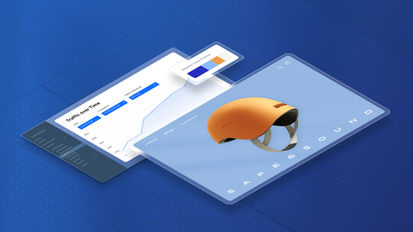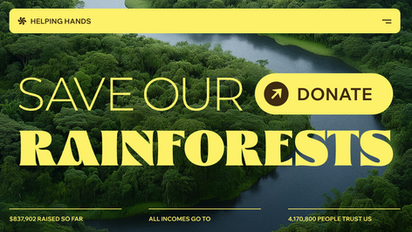Create Online Shop Website Trends
Quick Create Online Shop Website Guide
Create Online Shop Website
In today’s digital age, having a strong online presence is crucial for businesses and individuals alike. One of the most effective ways to showcase your work and attract potential clients is through a website portfolio. However, creating a website portfolio can be a daunting task, especially if you don’t have any design or coding experience.

Create Online Shop Website Challenges
Create Online Shop Website
Web hosting providers offer various types of hosting plans and services to accommodate the needs of different websites. From shared hosting to dedicated servers, there are several options available for individuals and businesses looking to host their websites online.
Shared hosting is the most popular and affordable type of web hosting. With shared hosting, multiple websites are hosted on the same server, sharing its resources such as CPU, RAM, and storage space. This type of hosting is ideal for small websites with low to moderate traffic. However, shared hosting may not be suitable for websites that require high performance or resource-intensive applications.
VPS hosting, or Virtual Private Server hosting, is a step up from shared hosting. With VPS hosting, websites are hosted on virtual servers that mimic dedicated servers. Each website on a VPS server has its own dedicated resources, such as CPU, RAM, and storage space. This type of hosting is ideal for websites that require more control and flexibility but do not need a dedicated server.
Dedicated server hosting is the most powerful and expensive type of web hosting. With dedicated server hosting, websites have their own physical server dedicated solely to their needs. This type of hosting offers maximum performance, security, and customization options. Dedicated server hosting is ideal for websites with high traffic volumes, e-commerce websites, and large enterprises.
Cloud hosting is a relatively new type of web hosting that utilizes cloud computing technology to host websites on virtual servers. With cloud hosting, websites are hosted across multiple servers, providing scalability and flexibility. Cloud hosting is ideal for websites that experience fluctuating traffic levels or require high availability and uptime.
Managed hosting is a type of hosting service in which the web hosting provider manages and maintains the server infrastructure for the website owner. With managed hosting, users do not have to worry about server maintenance, security updates, or technical issues. This type of hosting is ideal for users who do not have the technical expertise or resources to manage their own servers.
There are several factors to consider when choosing a web hosting provider, such as reliability, speed, security, scalability, and customer support. Reliability is critical for ensuring that your website is always accessible to visitors. Speed is crucial for providing a positive user experience and improving search engine rankings. Security is essential for protecting your website from cyber threats and data breaches. Scalability is important for accommodating the growth of your website and handling increases in traffic. Customer support is vital for assisting with technical issues and ensuring that your website remains online and operational.
In addition to hosting services, web hosting providers often offer additional features and services, such as domain registration, website builders, one-click installation of applications, SSL certificates, email hosting, and backup services. These additional features can enhance the functionality and security of your website and simplify the management of your online presence.
The cost of web design can vary significantly depending on a number of factors. One of the primary factors that will impact the cost of your website is the complexity of the design. A simple, static website with basic functionality will typically cost less than a complex e-commerce site with custom features and integrations. Additionally, the number of pages and features you require will also impact the cost of your website. For example, a website with a large number of product pages and a sophisticated search function will cost more than a simple informational site.
The level of customization required for your website will also influence the cost. Pre-designed templates are a cost-effective option for businesses on a budget, but they may not provide the level of customization and branding that you desire. A custom-designed website, on the other hand, will be tailored to your specific needs and can help set your business apart from the competition. However, custom design comes at a higher price tag, so it’s important to weigh the benefits against the cost.
Another factor that can impact the cost of web design is the platform or content management system (CMS) that is used to build your website. Popular platforms like WordPress, Shopify, and Squarespace offer a range of templates and features that can help reduce development costs. However, if you require custom functionality or integration with other systems, you may need to invest in a more advanced CMS or even build a custom website from scratch, which can be more expensive.
In addition to design and development costs, ongoing maintenance and updates should also be factored into the cost of your website. Regular updates to your website’s content, security, and functionality are essential to keep your site running smoothly and to ensure that it remains relevant to your audience. Some web design agencies offer maintenance packages as part of their services, while others charge on an hourly basis for updates and support. It’s important to clarify these costs upfront so that you can budget accordingly.
When shopping for web design services, it’s important to do your research and compare quotes from multiple providers. Prices can vary widely depending on the agency’s location, expertise, and level of service. Be wary of prices that seem too good to be true, as they may indicate low-quality work or hidden fees. Look for a web design agency that has a proven track record of delivering high-quality websites within your budget.
To get the best value for your money, be clear about your goals and requirements when discussing your project with a web design agency. Provide examples of websites that you like, as well as any specific features or functionality that you need for your site. A good designer will be able to provide recommendations based on your budget and objectives, helping you to achieve your desired results without breaking the bank.

A Beginner’s Guide to Create Online Shop Website
Create Online Shop Website
In conclusion, website accessibility is a crucial aspect of web development that should not be overlooked. Using a website accessibility checker can help you identify and fix accessibility issues on your site, ensuring that all users can access your content. By staying informed about accessibility guidelines and best practices, and regularly testing your website for accessibility, you can create a more inclusive online experience for all users.


